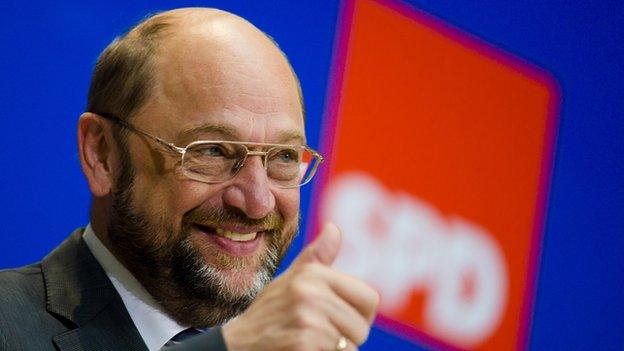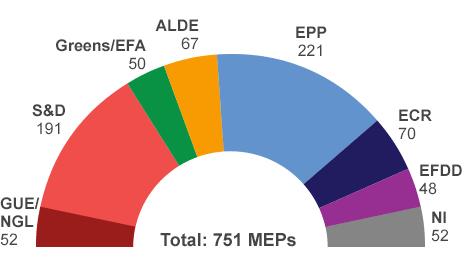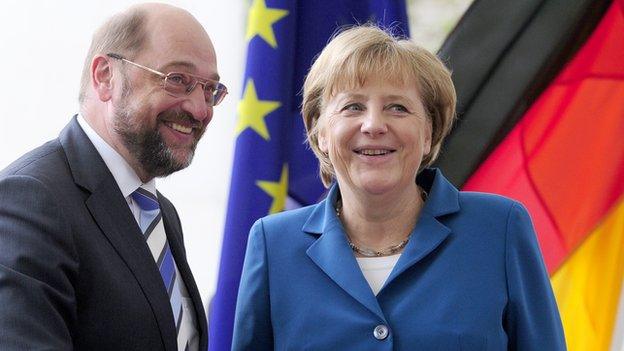German Socialist Schulz elected to lead MEPs again
- Published
The BBC's Chris Morris gives a quick tour of the European Parliament
The new European Parliament has begun its first session and elected German Socialist Martin Schulz to a new term as parliament president.
He got 409 votes in the 751-seat chamber, after his Socialist S&D bloc backed the conservative Jean-Claude Juncker to be Commission president.
Mr Juncker's EPP bloc, the biggest in parliament, voted for Mr Schulz in a deal giving him a 2.5-year term.
British Eurosceptic MEPs turned their backs when the EU's anthem was played.
A chamber orchestra opened the session in Strasbourg by playing Beethoven's Ode to Joy.
Most MEPs stood up for it, but British Conservatives - in the ECR group - sat quietly while UKIP members turned their backs, the Eurosceptic MEP Daniel Hannan tweeted, external.

Martin Schulz says there is now "no hierarchy" among EU institutions
The Lisbon Treaty, signed nearly five years ago, gave the parliament an equal say with EU governments in most areas of EU business.
In a speech to MEPs on Tuesday, Mr Schulz said "there is now no hierarchy in the EU... today we are the source of democratic legitimacy in the EU".
New procedure
Mr Schulz was the centre-left Socialists' rival to Mr Juncker for the European Commission presidency.
But after the centre-right European People's Party (EPP) won the election the Socialists backed Mr Juncker for the job.
Last week's controversial EU summit vote in favour of Mr Juncker was seen as a victory for the European Parliament's "Spitzenkandidat" (lead candidate) initiative.
The parliament - with Mr Schulz in the vanguard - argued that the top candidate of the winning group in the European election must lead the Commission, for EU institutions to have credibility among voters.
Should EU abolish its Strasbourg building?
UK Prime Minister David Cameron objected to the parliament having such a big say in the choice of Commission chief - a procedure which departed from EU precedent. But only Hungary's Prime Minister Viktor Orban voted with him.
Before Mr Schulz's election on Tuesday the party groups' rival candidates put their cases to fellow MEPs.
The ECR's Sajjad Karim condemned what he called a "cosy consensus brokered behind closed doors". He said the MEPs' vote was already a done deal, and the job of parliament president had been "reduced to nothing more than a bargaining chip".
Ulrike Lunacek of the Greens also condemned "a pre-cooked deal which we just rubber stamp".

EPP - European People's Party (centre-right)
S&D - Progressive Alliance of Socialists and Democrats in Europe (centre-left)
ALDE - Alliance of Liberals and Democrats for Europe (liberal)
GUE/NGL - European United Left-Nordic Green Left (left-wing and Eurosceptic)
Greens/EFA - Greens/European Free Alliance (Greens and regionalists/nationalists)
ECR - European Conservatives and Reformists Group (right-wing)
EFDD - Europe of Freedom and Direct Democracy (Eurosceptic)
NI - Non-attached (stands for "non inscrits" - MEPs not in any group, includes many Eurosceptics or anti-EU)
- Published1 July 2014

- Published1 July 2014